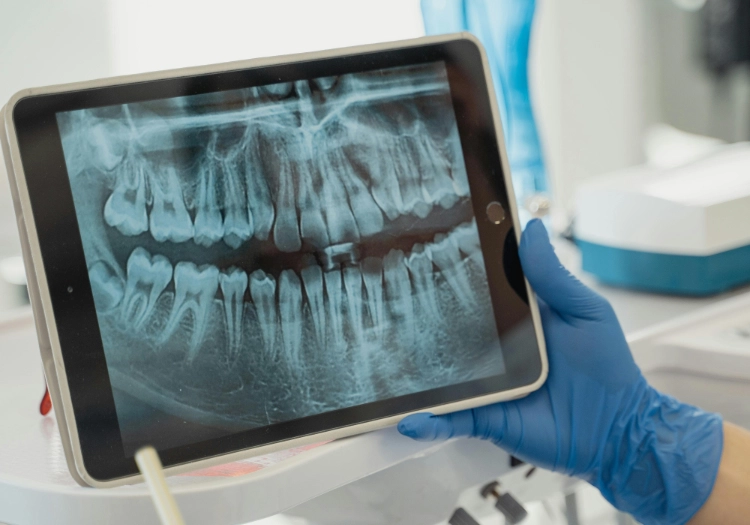Augmented reality (AR) is making waves across various industries, but one area where its impact is especially revolutionary is healthcare. From enhancing training simulations for medical students to providing real-time guidance for surgeons, AR is reshaping what's possible in the field of medicine.
For healthcare professionals and decision-makers considering AR solutions, here's a comprehensive look at how augmented reality is transforming healthcare beyond imagination — and why partnering with a skilled AR provider could be the key to maximizing these innovations.

The Rise of Augmented Reality in Healthcare
Why AR Is Perfectly Suited for Medical Environments
AR's defining strength lies in its ability to overlay digital information on the real world, enhancing visualization, hands-free interaction, and real-time feedback. These capabilities make it ideal for complex medical environments where accuracy and immediacy are essential. In healthcare, AR is being used to improve diagnostics, surgical planning, and patient education, often with life-saving results.
Moreover, the statistics reflect this growth: according to recent industry reports, the AR market in healthcare is expected to grow at an annual rate of 25%, fueled by an increasing demand for improved patient outcomes, more effective training, and innovative remote care solutions.
Key AR Applications in Healthcare
While the applications of AR in healthcare are constantly evolving, some key areas have emerged where its impact is particularly significant:
- Medical Training and Education: Providing immersive training experiences that mirror real-world scenarios.
- Diagnostics and Surgical Assistance: Enhancing precision with real-time overlays and visual guidance.
- Patient Rehabilitation and Engagement: Supporting personalized and interactive recovery programs.
- Telemedicine and Remote Care: Enabling remote diagnostics and consultations, especially in underserved areas.
Each of these applications represents a major shift in traditional methods, with AR offering new levels of accessibility, accuracy, and engagement.
Enhancing Medical Training and Education with AR
Simulated Training Scenarios Without the Risks
AR offers an invaluable training tool for medical professionals, providing safe, controlled environments where complex procedures can be practiced without risk to patients. AR platforms create immersive simulations, allowing students, residents, and even experienced practitioners to practice and improve skills on virtual patients before taking them to the real world. These realistic AR simulations are particularly valuable in high-stakes situations, such as surgery or emergency response.
Imagine a medical resident using an AR application to practice a complex surgical technique. The AR overlay can provide step-by-step guidance, help them understand the spatial relationship of organs, and offer real-time feedback. By simulating these experiences, AR reduces the potential for error once the resident transitions to live patient care.
Improving Patient Education and Communication
For patients, understanding a diagnosis or upcoming procedure can often be overwhelming, especially when medical terminology and anatomy are involved. AR helps simplify this process by providing patients with clear, interactive visuals of their medical conditions. With AR apps, doctors can show patients exactly what's happening in their bodies and how different treatments will work.
For instance, a cardiologist could use AR to illustrate how a blockage affects blood flow or how a stent will be inserted. This visual approach not only helps patients feel more informed but also increases their confidence in their treatment plans.
Revolutionary Applications of AR in Diagnostics and Surgery
Real-Time AR for Enhanced Diagnostics
In diagnostic settings, AR provides powerful new ways to view and interpret patient data. By layering 3D imaging over real-time video feeds, AR gives doctors an in-depth view of patient anatomy that traditional methods can't achieve. This can be a game-changer in radiology, where AR aids in detecting anomalies in CT scans, X-rays, and MRIs with increased accuracy.
Consider a radiologist examining a tumor with an AR overlay that presents the tumor's exact dimensions and position relative to surrounding tissues. The ability to view this data in 3D and in real-time helps the radiologist make faster, more accurate diagnoses.
Surgical Assistance with AR-Guided Procedures
One of the most groundbreaking applications of AR in healthcare is its use in the operating room. Surgeons can benefit from AR overlays that provide essential guidance during complex procedures, increasing precision and improving patient outcomes. For instance, an AR headset can display a real-time map of a patient's vascular structure, allowing the surgeon to navigate through tiny veins with accuracy.
These AR-guided procedures have been especially useful in orthopedic and neurological surgeries, where precision is paramount. Surgeons report feeling more confident and focused, as the AR overlay acts like a virtual roadmap, showing them exactly where they are and what to do next.
Supporting Patient Rehabilitation and Recovery with AR
Personalized Rehabilitation Programs Through AR
Once a patient leaves the hospital, rehabilitation becomes essential to their recovery. AR applications provide a highly personalized and interactive approach to rehabilitation, helping patients follow their prescribed exercises with real-time feedback and guidance. Whether they're recovering from a knee surgery or building back strength after a stroke, AR can adapt exercises based on their progress, encouraging them to stay on track.
For instance, an AR rehabilitation app could guide a patient through exercises, correcting their form and ensuring they're moving within a safe range. Physical therapists also benefit from this technology as they can monitor progress remotely and adjust routines as needed, creating a more continuous and responsive care environment.
Gamification of Recovery to Motivate Patients
For many patients, sticking to a recovery plan can feel daunting or tedious. AR makes rehabilitation engaging by incorporating gamified elements, turning exercises into achievements and creating a sense of accomplishment. Patients might earn points, unlock levels, or track progress visually, all of which can keep them motivated and focused on their goals.
For example, an AR app for stroke recovery could guide patients through exercises to improve mobility and motor skills. Each successful completion could earn them points or rewards, making their rehabilitation journey both rewarding and enjoyable.
Emerging Trends and the Future of AR in Healthcare
AI-Driven AR for Adaptive and Smart Solutions
The next generation of AR in healthcare will likely be driven by artificial intelligence (AI), where AR applications become more adaptive and responsive to each patient's unique needs. AI can analyze data from previous treatments or training sessions to offer suggestions or dynamically adjust the AR interface based on the user's actions. This will bring a new level of personalization and efficiency to patient care and medical training.
AR for Remote Care and Telemedicine
AR is also set to play a critical role in telemedicine, especially for patients in remote or underserved areas. Imagine a remote consultation where an AR device allows the doctor to see a patient's vitals, overlay instructions for self-care, and guide them through a self-exam. AR telemedicine solutions could bring high-quality care to anyone, anywhere, breaking down the barriers of geography.
The Value of Partnering with Professional AR Providers
Given the complexities of AR in healthcare, working with a skilled AR provider can make a tremendous difference. These providers not only bring expertise in technical development but also understand the importance of regulatory compliance, user experience, and data security in healthcare environments. By partnering with an experienced AR company, healthcare organizations can confidently implement custom solutions that meet their specific needs and push the boundaries of traditional patient care.
Transforming Healthcare Beyond Imagination with AR
From training and diagnostics to surgery and rehabilitation, augmented reality is transforming healthcare in ways that were once the stuff of science fiction. The potential for improved patient outcomes, greater efficiency, and more accessible care is unprecedented.
If you're part of a healthcare organization exploring AR solutions, now is the perfect time to see what's possible by partnering with a professional AR provider. Together, you can bring your vision of the future of healthcare to life and play a role in shaping an innovative, patient-centered future.
Need your AR app call us today!
We are a team of experienced AR developers based in Manchester UK, but we work with clients all over the world.
Call now +44 (0) 7798 834 159

